Calhoun County, AL –For years I called cannas, bulbs! However! They are rhizomes, like Iris. After the early spring tulips and late spring Iris and gladiolus have demonstrated their flowering beauty, … exotic lilies take center stage. Cannas Lily is actually not a Lily. Early summer giant stalks of cannas lilies will continue to bloom until frost. However, if you plant their rhizomes too deep you will delay the stalks appearing. Cannas love wet feet (roots). Sunny, hot days, wet roots and dozens of potential blooming cannas could be your enjoyment! I have a few cannas Lily favorites. Picasso Cannas Lily has solid green stalks and leaves, with yellow flowers, with red dots. Nirvana Cannas Lily has chartreuse striped leaves, with bloom pods that start red, then burst into yellow. Wyoming Cannas Lily grows bronze wine stalks and leaves with orange blooms. I use Wyoming in my shade garden as a bronze leaf contrast to hostas, ferns, coral bells, Coleus. I risk zero blooms by Wyoming planted in the shade because I am focused on its giant bronze stalks and leaves. The dreaded cannas roll worms can ravaged your potential blooms. I buy from the local Farmers Co-op, DIPEL Dust. DIPEL kills all worms, such as tomato hornworms, by stopping their digestive system. Remove all dead, dried cannas leaves in the fall of the year, so the roll worms will not winterized in the dead material. In late spring, when you see cannas Lily peeping out of the ground apply Dipel weekly until their stalks set the blooms. If you are tardy, the roll worms will seal themselves into the bloom chamber & eat holes in the potential leaves, blooms. If this happens you will need to cut off the damage, and allow the stalks to hopefully create late fall of the year blooms! I love the giant pop of color, and you will also! Some research: They are not true lilies, but are more closely related to gingers, bananas, and birds of paradise.
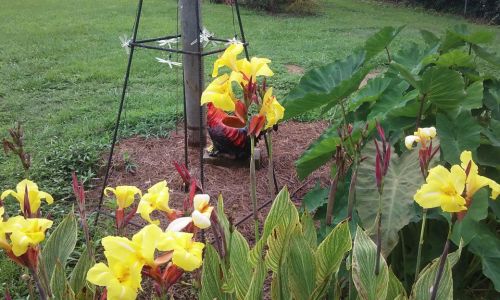
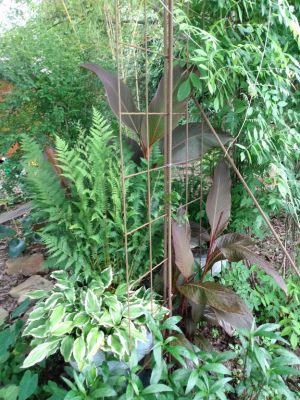

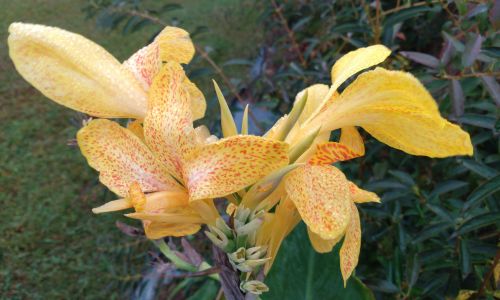
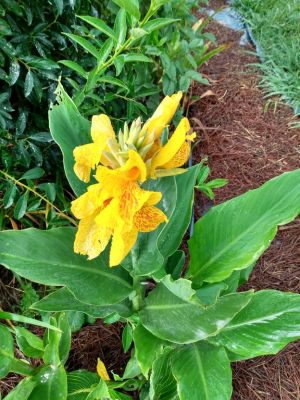
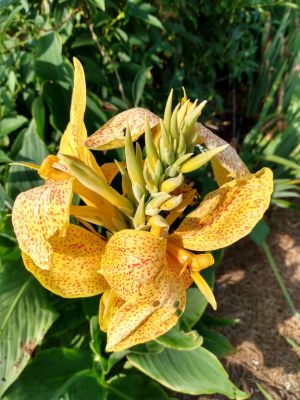
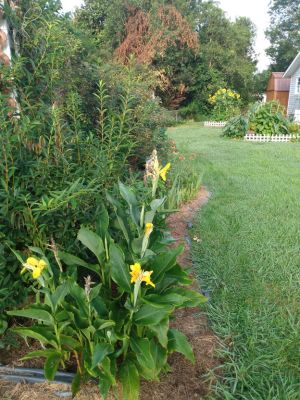
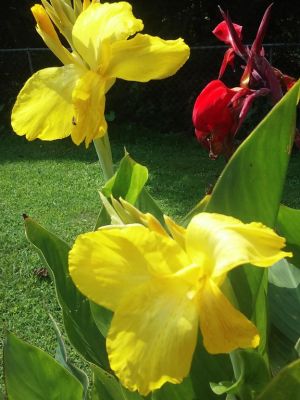
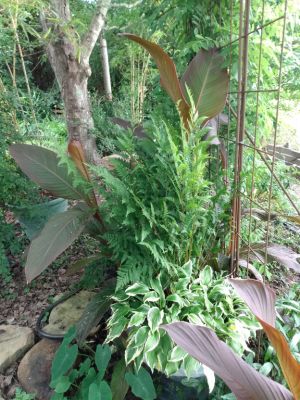
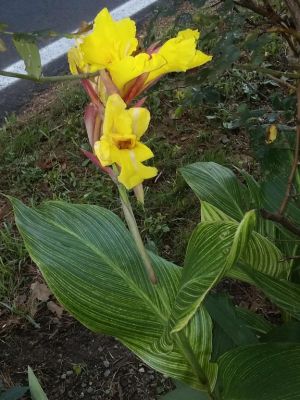
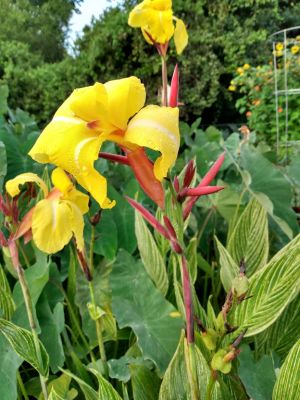
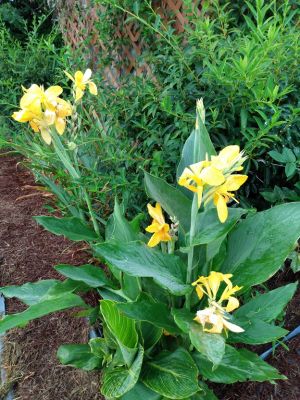
Betty Clark is a contributing writer. She is an organic gardener since 1998. Signature flower she grows are Dahlias. She has a straw bale garden, raised bed garden, and in ground garden. Both her surnames are agricultural farming families (8 generations). Her hobbies include ancestry research, antiques, continued education classes, and workshops. She also has a background in marketing & promotions including expos. To contact Betty Clark with gardening questions: [email protected]










